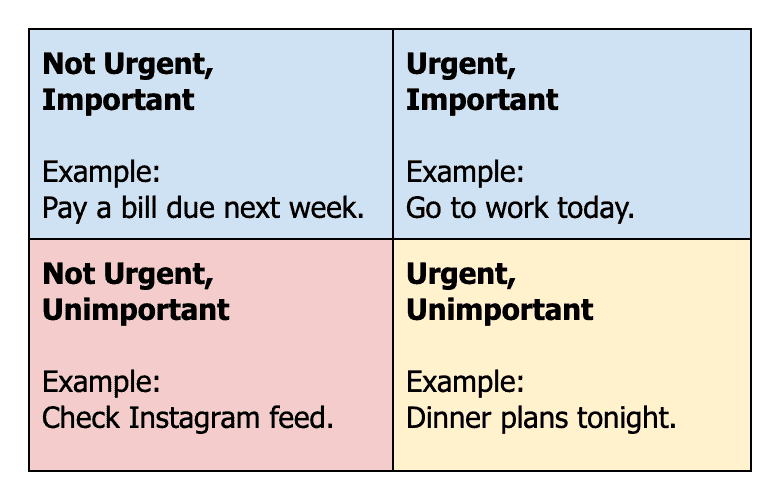Exercising Discipline to Succeed
The phrase “exercise discipline” can rouse different feelings.
On one hand, we dread discipline as a punishment for failure. Parents discipline a child for failing to get off the playground when asked. After failing an assignment, a student becomes disciplined and grudgingly chooses the library over the party.
On the other hand, we admire discipline as a character trait that leads to success. Elite athletes are lauded for their discipline and commitment to intense training regimens. The author who writes every day produces a bestseller through talent and discipline.
It would seem, then, that discipline is the cause of success and the remedy for failure. So why do we often fail to practice it?
Defining Success
You could argue that we aren’t actually failing to exercise discipline; we’re simply practicing it at the wrong time and for the wrong reasons. We either care too much about success in one area, or we want to succeed in all areas. In both cases, we waste effort, discipline breaks down, and we realize an unwanted failure.
For many of us, the path to success starts with defining (or redefining) success for ourselves. This is not easy, as it requires honest introspection that cuts through preconceived ideas of success. However, once that understanding is in place, we can move onto the next step of determining when to exercise discipline.
Foresight is 80/20
The Pareto principle is the idea that 80% of effects come from 20% of the causes. Here are some examples:
- 20% of workers at your company generate 80% of production
- 20% of employees at your company cause 80% of your HR headaches
- 20% of your marketing produces 80% of your sales.
Applied to the exercise of discipline, we could say that 80% of our successes are caused by 20% of our decisions to exercise discipline or not. So what does that mean?
It means that to be successful, you do not need to exercise discipline 100% of the time. Rather, you must know when to exercise discipline… especially during that 20% of the time that impacts 80% of your success.
What is important to my success?
First, we need to throw out the idea that everything is important to our success. Trust me, I know there are people who believe everything is important (they’re real fun at parties), but the reality is that not everything is important. Now that being said, different things are important to different people’s ideas of success–who am I to tell an Instagram influencer that her latest post is unimportant?
The easiest way to determine what is important to your success is to simply ask the question: “Will doing this activity or making this decision take me closer to my idea of success?” If the answer is yes, then it’s likely that the decision to exercise discipline lies in that oh so important 20% that will cause 80% of success.
Get Things Done
For the most part, exercising discipline to succeed seems easy. You simply prioritize doing important things over the unimportant things. However, there is also a question of whether an activity is urgent–does it need to be done now or very soon? In the chart below, discipline means living in the blue quadrants, with an occasional trip to the yellow quadrant.
Things to Be Done
You may not agree with how I classified my examples above; however, the point is that everyone has the ability to classify “things to be done” according to what they see as important and urgent for their success. In looking at my examples, one could assume that success for me includes: career, earning money, meeting commitments.
Prioritize what is important
Assuming you’ve taken the time to define what’s important in your life, it will be considerably less difficult to know when to exercise discipline. But it still doesn’t tell us how to exercise discipline. For that, we’ll need to prioritize what is important. A couple examples with “family” and “health” as important areas of success:
- Family: nephew has ballgame at 7pm,
- Entertainment: new season of Stranger Things 2 released at 7pm
- Discipline: go to game and catch show later
- Undisciplined: I am tired. There will be other games. I deserve some chill time.
- Health: scheduled time to workout at 6:15am Monday
- Entertainment: Binge-watched Stranger Things until 1am Monday
- Discipline: go to gym on 5 hours of sleep, learn your lesson.
- Undisciplined: hit snooze button, vow to reschedule for afternoon (fail to do so)
These disciplined/undisciplined decisions above are not shocking and the choices may seem easy. However, depending upon circumstances like our stress and energy levels, distractions, and upcoming commitments, it could be very difficult to exercise discipline in the moment.
Discipline is Action in the Moment
And unfortunately, exercising discipline in the moment is critical because discipline is action, not thought. The longer we think about doing something, the less likely it is that something will be done. This is where most people fall off the discipline train–they think about doing something, but fail to take action.
Of course, we don’t admit to ourselves that we’re undisciplined. We make excuses and tell ourselves that we deserve a break. We renew commitments and adjust our plans for tomorrow. The problem is that this failure to exercise discipline becomes a habit. And like any habit, it’s hard to break.
To make matters worse, this habit delays achievement, which then adds to our stress and decreases energy. Discipline becomes harder to exercise because we haven’t realized the benefits. Success seems to escape us.
Staying on track
Everyone knows that dedicating time to your sweet, kind nephew (not the bratty one) is more important than watching Stranger Things 2, but over a quarter million Americans binge-watched it the first day it was released. It’s safe to assume that many had more important things to do.
So while discipline is easy to understand, we must exercise it in order to realize success. This is done by defining success for yourself, knowing what’s important, prioritizing what’s important, and then doing it—whether that’s in the office, at home, or somewhere in between.
Disciplined Hiring: ExactHire develops HR software that makes it easy to develop consistent workflows for hiring and onboarding that help you realize success in talent management.










